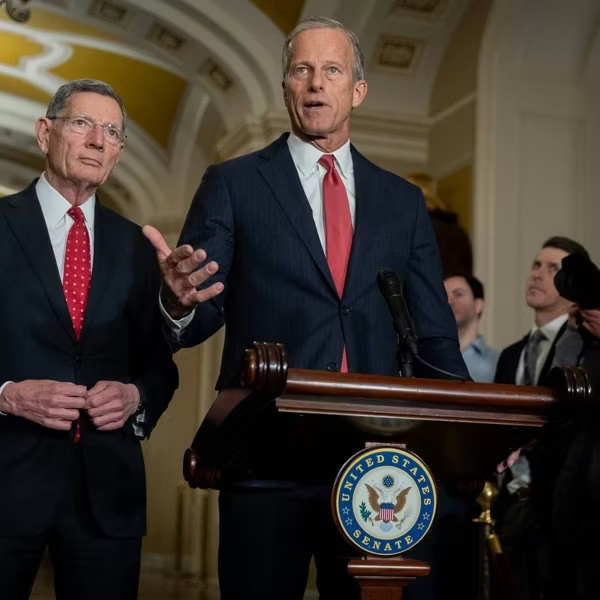Just days ahead of President Obama's State of the Union on Tuesday, the White House has announced plans for a major tax overhaul which would raise rates on the nation's wealthiest individuals and increase fees for financial firms while offering an assortment of tax breaks designed to help the nation's struggling middle class.
In a media call with reporters on Saturday, an unidentified Obama administration official offered the broad strokes of the proposal. According to Reuters:
Obama's proposals call for reforming tax rules on trust funds, which the administration called "the single largest capital gains tax loophole" because it allows assets to be passed down untaxed to heirs of the richest Americans.
They also would raise the capital gains and dividends rates to 28%, the level during the 1980s Republican presidency of Ronald Reagan.
As a way of managing financial risk that could threaten the US economy, Obama also wants to impose a fee of seven basis points on the liabilities of US financial firms with assets of more than $50bn, making it more costly for them to borrow heavily.
The changes on trust funds and capital gains, along with the fee on financial firms, would generate about $320bn over 10 years, which would more than pay for benefits Obama wants to provide for the middle class, the official said.
Vox.com also offered a thorough rundown of the various aspects of the White House proposal.
U.S. Senator Bernie Sanders (I-Vt.) welcomed news of the proposal.
"At a time of obscene levels of income and wealth inequality, President Obama's plan moves us in the right direction," Sanders said in a statement on Sunday. " I look forward to working with the administration to adopt a tax system that eliminates unfair tax loopholes that only benefit the wealthiest people and largest corporations and to increase the take-home pay of working Americans."
Not surprisingly, the plan spurred immediate condemnation from the Republican Party, but Robert Greenstein, president of the Center on Budget and Policy Priorities, assessed the plan by saying it would likely boost economic growth and provide the intended benefits to both lower- and middle-income families.
"The president's new tax proposals will surely elicit howls of protest from various special interests and on ideological grounds, adversaries will make predictable claims that the proposals would harm the economy and jobs," Greenstein told The Hill. "Yet while the proposals do present a major challenge to the status quo, they should benefit economic growth, not hinder it, while substantially helping tens of millions of middle- and lower-income working families and individuals."
Invoking the French economist Thomas Piketty--whose best-selling book, Capital in the 21st Century, called for a global tax on the wealthiest--the Washington Post's Matt O'Brien lauded the president's plan as he placed it in the context of other domestic policy measures announced ahead of Tuesday's speech. According to O'Brien:
The state of the union is pretty good, actually, but President Obama has an idea to make it better: taxing Wall Street and the super-rich to make middle-class work even more worthwhile. It's Piketty with an American accent.
Okay, that's a little bit of an exaggeration, but not a huge one. Obama's State of the Union, you see, will call for $320 billion of new taxes on rentiers, their heirs, and the big banks to pay for $175 billion of tax credits that will reward work. In other words, it's fighting a two-front war against a Piketty-style oligarchy where today's hedge funders become tomorrow's trust funders. First, it's trying to slow the seemingly endless accumulation of wealth among the top 1, and really the top 0.1, no actually the top 0.001, percent by raising capital gains taxes on them while they're living and raising them on their heirs when they're dead. And second, it's trying to help the middle help itself by subsidizing work, child care, and education.
Meanwhile, according to the New York Times' David Leonhardt, what is really driving the debate over tax reform and the economy is what he describes as the "great wage slowdown." He writes:
Wages and incomes for most Americans have now been stagnant for 15 years. They rose at a mediocre pace for much of President Bush's tenure in the 2000s, before falling sharply during the financial crisis that dominated the end of his presidency. Mr. Obama helped break the back of the crisis, but the recovery on his watch has been decidedly mediocre, too -- especially in terms of paychecks.
Even as job growth has picked up in recent months, wages haven't grown much more quickly than inflation. As a result, the government's official statistics suggest that the typical American household makes no more than the typical household did in the final years of the 20th century.
Taken in terms more familiar to progressives, this argument speaks to the reality that while the top 1 percent have been the main recipients of prosperity and financial improvement for decades, it remains the middle class, the working poor, and those left out of the economy entirely who continue to be punished by rampant inequality and an economic and political elite that has detached itself from the concerns of the majority of people. And though there may be reason to celebrate aspects of the new plan, it's clear that many will be unimpressed by that fact that the proposal to more adequately tax the rich and help the poor arrives at the very moment the president and his party are least capable of making it a reality.



